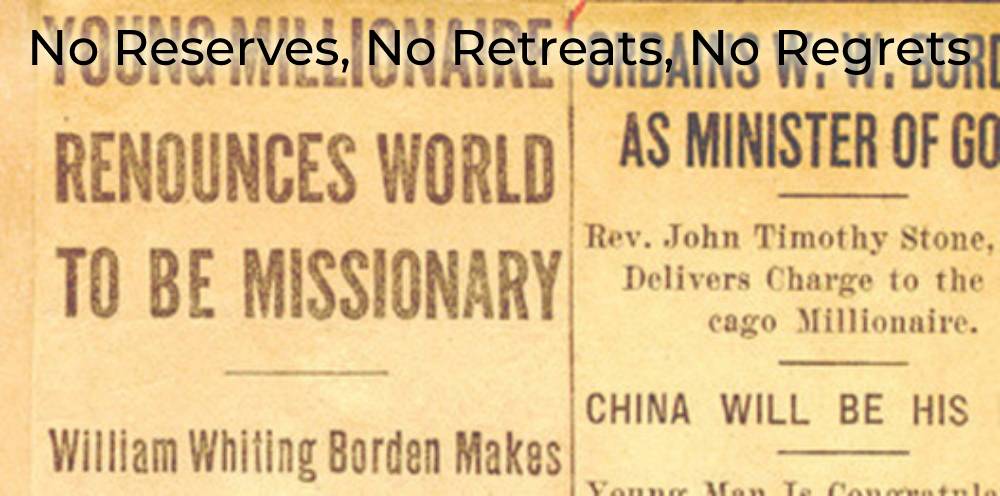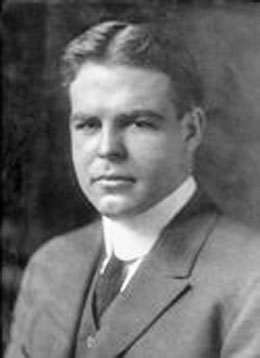
Don’t put out the Spirit’s fire. [1 Thessalonians 5:19 GW]
William Borden, after he graduated from high school in 1904, was called to be a missionary. At different points in Bordon’s short life, he wrote in the back of his Bible, “No reserves, no retreats, no regrets.”

Though he came from a very wealthy family, wealth did not possess him. Early on in his life, a friend expressed that he was throwing his life away by becoming a missionary—he wrote in his Bible, no reserves. After he graduated from Yale, he was offered very lucrative positions—he penned, no retreats.
His missionary call narrowed to a Muslim group in China. After doing graduate work at Princeton Seminary, he left for Egypt to study Arabic before arriving in China. In Egypt, he contracted spinal meningitis and within a month was dead at age twenty-five. Before his death, under the other two notations he had made in his Bible, he wrote—no regrets.
Was William Borden’s seemingly untimely death a waste of human life? Absolutely not. Thousands of people have read his story and have been encouraged in their missionary call. God never wastes any of our sorrows.
Things happen to Christians.
We experience what we don’t expect, and some expectations don’t come to fruition. The Christian life often entails disappointments that we can’t understand, but God uses them for his ultimate good. God lives in the eternal now. God makes decisions based on past, present, and future considerations.
Humans remember the past imperfectly, know what is happening now, and nothing about the future. God dwells on eternal priorities, man on temporal ones. Our heavenly Father always knows best.
The length of our life and our corresponding ministry are not indications of success in God’s eyes. Take, for instance, John the Baptist. It is recorded in Matthew 11:2-3 [NASB 1995], “Now when John, while imprisoned, heard of the works of Christ, he sent word by his disciples and said to Him, ‘Are You the Expected One, or shall we look for someone else?'”
His experience tempted John to doubt that Christ was the Messiah. In Matthew 14:10, it says, “He (Herod) sent and had John beheaded in prison.” John and his followers may have felt that it was not supposed to end like this. John had a very specific and powerful ministry—to prepare the way for the Lord—and he completed it.
God’s Kingdom is like a multi-faceted cosmic mosaic where all true believers in Christ have a piece in the montage. Your piece may be small and not very discernable from the other pieces, but it is there.
When we get to heaven, I believe that we see how the whole mosaic would never have been complete or held together with our little section. If you remain faithful to Christ to the end, God will highlight your part in history (His Story), and he will say to you, well done, good and faithful servant.
Church history is littered with people who have done great things for God yet had become sullen and cynical at the end of their lives. Things happened to them that may have seemed unfair or unjust. Some ended their lives in unbelief rather than faith in God.
We must remain faithful to the end like John the Baptist, Stephen, and many other heroes of our faith. We, like William Borden, at the end of our journey, need to be able to say, no reserves, no retreats, no regrets.

0 Comments